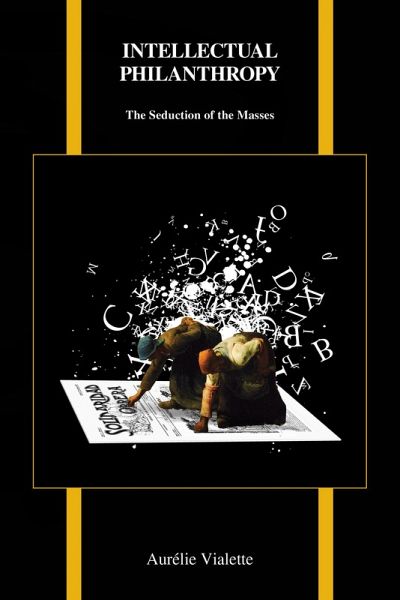
Intellectual Philanthropy (eBook, ePUB)
The Seduction of the Masses

PAYBACK Punkte
15 °P sammeln!
What's in a nineteenth-century philanthropist? Fear of an uprising. But the frightened philanthropist has a remedy. Aware that the urban surge of the working-class masses in Spain would create a state of emergency, he or she devises a means to seduce the masses away from rebellion by taking on himself or herself the role of the seducer: the capitalist intellectual hero invested in the caretaking of the unpredictable working class. Intellectual Philanthropy examines cultural practices used by philanthropists in modern Iberia. It explains the meaning and role of intellectual philanthropy by focu...
What's in a nineteenth-century philanthropist? Fear of an uprising. But the frightened philanthropist has a remedy. Aware that the urban surge of the working-class masses in Spain would create a state of emergency, he or she devises a means to seduce the masses away from rebellion by taking on himself or herself the role of the seducer: the capitalist intellectual hero invested in the caretaking of the unpredictable working class. Intellectual Philanthropy examines cultural practices used by philanthropists in modern Iberia. It explains the meaning and role of intellectual philanthropy by focusing on the devices and apparatuses philanthropists devised to realize their projects. Intellectual philanthropists considered themselves activists in that they aimed to impact social structures and deployed a rhetoric of the affect to convince the workers to join their philanthropic enterprise.
Philanthropy, in the nineteenth century, was not necessarily linked to money. Motivations could be moral or political; they could arise from a desire to enhance social status or to acquire influence. To explicitly designate this conceptualization of the philanthropic act, the author proposes its own name: intellectual philanthropy. Intellectual philanthropy is the use of philanthropic platforms by intellectuals to deploy cultural and educational structures in which workers could acquire a cultural capital constructed and organized by the philanthropists. Vialette argues that intellectual philanthropy appeared as a reaction to the feared political and cultural organization of the working class, rather than as a process of worker emancipation.
These philanthropic processes aimed at organizing the workers emotionally and rationally into what she calls micro-societies. Philanthropists used the technique of seduction and expressed love to and for a targeted class. However, this seduction prevented real communication, and created a moral and symbolic indebtedness. This process was perverse in that, through its cultural and educational structures, philanthropy would give workers cultural capital that was not just emancipatory, but also a way to restrict their agency.
Philanthropy, in the nineteenth century, was not necessarily linked to money. Motivations could be moral or political; they could arise from a desire to enhance social status or to acquire influence. To explicitly designate this conceptualization of the philanthropic act, the author proposes its own name: intellectual philanthropy. Intellectual philanthropy is the use of philanthropic platforms by intellectuals to deploy cultural and educational structures in which workers could acquire a cultural capital constructed and organized by the philanthropists. Vialette argues that intellectual philanthropy appeared as a reaction to the feared political and cultural organization of the working class, rather than as a process of worker emancipation.
These philanthropic processes aimed at organizing the workers emotionally and rationally into what she calls micro-societies. Philanthropists used the technique of seduction and expressed love to and for a targeted class. However, this seduction prevented real communication, and created a moral and symbolic indebtedness. This process was perverse in that, through its cultural and educational structures, philanthropy would give workers cultural capital that was not just emancipatory, but also a way to restrict their agency.
Dieser Download kann aus rechtlichen Gründen nur mit Rechnungsadresse in A, D ausgeliefert werden.













